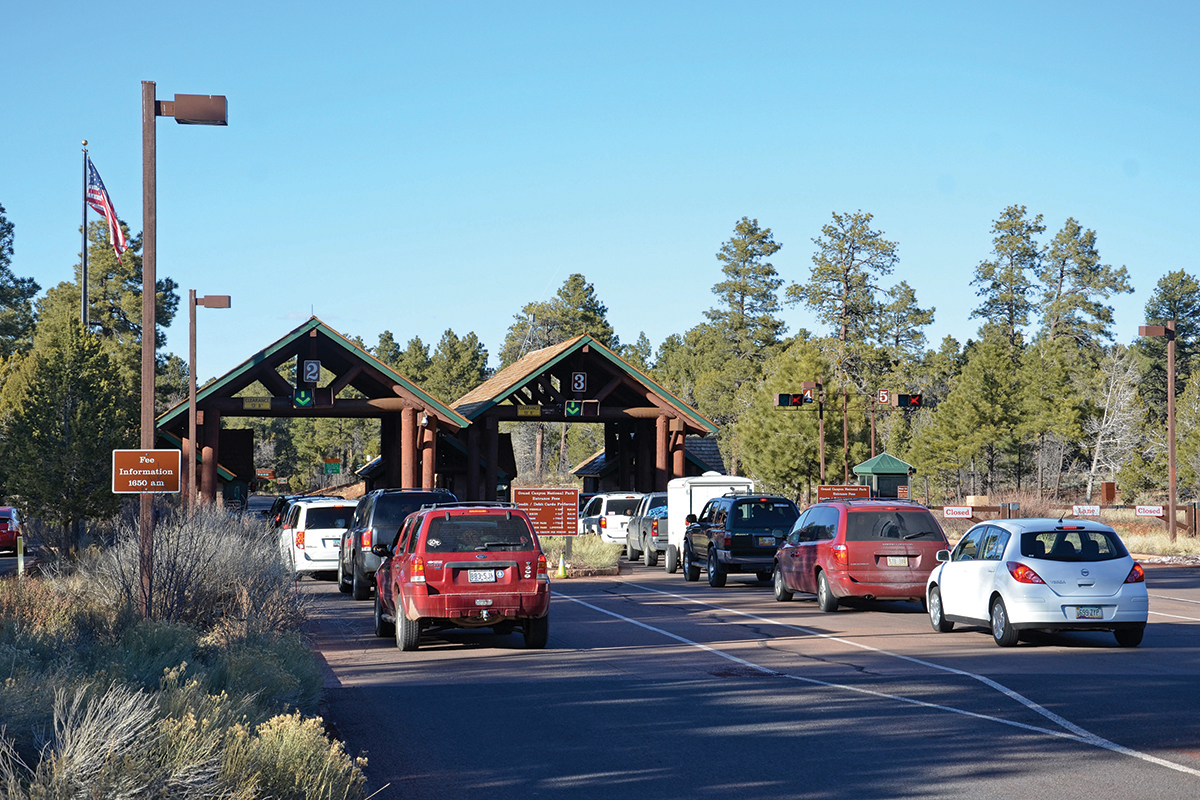With the government shutdown entering its third week, the National Park Service has announced it will reopen select areas of the National Park System using money collected from visitor fees. The agency is right to search for creative ways to get our nation’s most popular parks back up and running and tapping fee revenues to provide basic visitor services is eminently sensible. The Park Service’s fee authority was established for the purpose of bolstering funding for the services that visitors rely on, as well as to make parks more self-sufficient and less dependent on unreliable congressional appropriations. This would do exactly that.
The Federal Lands Recreation Enhancement Act requires that fee revenues must be spent on services or projects related to the enjoyment, access, health, and safety of park visitors. The act gives the Park Service broad discretion on how those funds can be used to benefit visitors.
The Park Service has traditionally imposed internal controls on the use of FLREA funds—such as prohibiting the use of fee revenues to support permanent employees, requiring that most of the funds be spent on deferred maintenance, and policies that generally prohibit the use of fee revenue on recurring maintenance and operational needs. These limitations, however, are not described in the FLREA statute. Relaxing those internal controls, as the Park Service appears to be doing here, is a positive step toward better addressing the agency’s most pressing maintenance and operational challenges.
It also reflects the core idea behind the Park Service’s current fee program. In fact, the agency’s modern fee authority originated in mid-1990s in response to the closure of Yellowstone’s popular Norris campground due to fiscal constraints—despite the fact that the campground generated more revenue than it cost to operate it. Under the Fee Demonstration Program, which later became FLREA, Congress allowed the Park Service to retain its fee revenue, rather than send it back to the U.S. Treasury, to ensure that campgrounds like Norris could remain open, as long as the funds were spent to enhance visitor services. It’s hard to see why allowing parks to tap fee revenue to keep popular parks open during a government shutdown would be anything other than a sensible policy—and one that is largely consistent with the origins of the current National Park Service fee program.
Visitor fees have long played an important role in sustaining national parks. Making those revenues available for park managers to bolster operations at parks during the government shutdown is a sensible policy. Those funds, which don’t require appropriation from Congress, will allow parks to begin to be able restore basic operations, maintain facilities, and enhance public safety.
The National Park Service should ensure the new policy is implemented in a way that gives local park managers the ability to determine what’s best for their park. Park managers should decide whether fee revenues are best spent keeping the park open or by shutting the gates and retaining the revenues for other important projects. The managers on the ground understand these tradeoffs best. This flexibility would ensure that the unique needs of each park are addressed while continuing the Interior Department’s goal of granting more decision-making authority to the local level.
Learn more about how we can foster better management of our national parks by harnessing the power of entrepreneurship, markets, and cooperative partnerships here.




